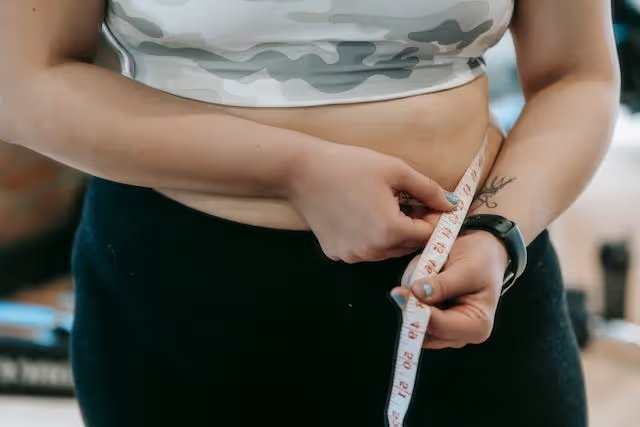
Understanding Self-Injury Awareness Day
Self-Injury Awareness Day is a significant observance dedicated to shedding light on the prevalence of self-injury and promoting understanding and support for individuals affected by this behavior.
What is Self-Injury Awareness Day?
Self-Injury Awareness Day, often abbreviated as SIAD, is a global awareness campaign held annually on March 1st. This day serves as a platform to raise awareness about self-injury, also known as self-harm, and its impact on individuals. It aims to challenge stereotypes, reduce stigma, and encourage open conversations about mental health struggles.
History and Significance of Self-Injury Awareness Day
Self-Injury Awareness Day originated in 2002, initiated by a young woman named Mary Kelly, who wanted to remove the misconceptions surrounding self-injury and provide support to those struggling with this behavior. Since then, the observance has grown into a worldwide movement, drawing attention to the complexities of self-injury and advocating for compassion and understanding.
To commemorate Self-Injury Awareness Day, various organizations, mental health advocates, and individuals participate in educational events, support campaigns, and online initiatives to foster a safe and supportive environment for individuals coping with self-injury. Through these efforts, the importance of mental health awareness and destigmatizing discussions around self-injury continues to gain momentum, ultimately striving to create a more empathetic and inclusive society.
By understanding the significance of Self-Injury Awareness Day and actively engaging in awareness-raising activities, we can contribute to promoting mental health advocacy, supporting individuals in need, and breaking the silence surrounding self-injury.
Raising Awareness Through Campaigns
In efforts to raise awareness on self-injury awareness day, various campaigns are launched to educate the public and offer support to those in need. These campaigns take on different forms, including social media campaigns, community events and workshops, and educational campaigns in schools.
Social Media Campaigns
One of the predominant ways to reach a wide audience and generate engagement is through social media campaigns. By utilizing platforms such as Instagram, Facebook, and Twitter, organizations and individuals can share information, personal stories, resources, and supportive messages to raise awareness about self-injury and mental health.
Community Events and Workshops
Community events and workshops play a vital role in bringing people together to learn, share experiences, and offer support. Organizations often host events such as seminars, support group meetings, art therapy workshops, and fundraising activities to engage with the community and provide a safe space for discussion and education.
Educational Campaigns in Schools
Educational campaigns in schools are essential for reaching young individuals and promoting mental health awareness from an early age. Schools collaborate with mental health organizations to conduct presentations, workshops, and assemblies that address self-injury, its associated challenges, and resources available for support.

By implementing a combination of social media campaigns, community events and workshops, and educational campaigns in schools, the message of self-injury awareness can be spread effectively, leading to greater understanding, empathy, and support for individuals impacted by self-injury.
Supporting Those Impacted
When it comes to supporting individuals affected by self-injury, there are various resources and services available to provide help and assistance. These include access to resources and support hotlines, therapy and counseling services, as well as self-help strategies.
Resources and Support Hotlines
One of the immediate sources of assistance for individuals dealing with self-injury is through resources and support hotlines. These helplines are staffed with trained professionals who can offer immediate emotional support, guidance, and information on local mental health services.

Therapy and Counseling Services
Therapy and counseling services play a vital role in supporting individuals struggling with self-injury. Licensed therapists and counselors can provide a safe space for individuals to explore their thoughts and emotions, develop coping strategies, and work towards healing and recovery.
It is essential for individuals seeking therapy to find a mental health professional who specializes in self-injury and has experience in treating related mental health conditions.
Self-Help Strategies
In addition to professional help, self-help strategies can also be effective in managing self-injurious behaviors. These strategies may include journaling, mindfulness practices, engaging in creative outlets, and developing healthy coping mechanisms.
Self-help strategies are personal and may vary from individual to individual. It’s important for individuals to explore different techniques and find what works best for them in managing their emotions and behaviors.
By combining access to resources and support hotlines, therapy and counseling services, and self-help strategies, individuals impacted by self-injury can receive comprehensive support to help them navigate their challenges and work towards healing and recovery.
Spreading Awareness Online
In the digital age, online platforms play a pivotal role in spreading awareness about self-injury and promoting support for individuals struggling with self-harm. Utilizing hashtags and social media trends, as well as engaging in online support groups and forums, can create a space for open conversations and shared experiences.
Hashtags and Social Media Trends
Hashtags serve as powerful tools for raising awareness and driving conversations surrounding self-injury awareness. By using relevant hashtags on social media platforms, individuals can reach a broader audience and increase visibility for important discussions. Here are some commonly used hashtags related to self-injury awareness:

By incorporating these hashtags into social media posts, individuals can contribute to the ongoing dialogue surrounding self-injury awareness and promote a sense of community and support.
Online Support Groups and Forums
Online support groups and forums provide a safe and confidential space for individuals to discuss their experiences with self-injury, seek guidance, and receive support from others who understand their struggles. These virtual communities offer a sense of connection and solidarity, fostering a supportive environment for those grappling with self-harm.

Participating in online support groups and forums can be a valuable source of comfort and guidance for those navigating self-injury. These platforms facilitate open dialogue, reduce feelings of isolation, and empower individuals to seek help and support on their journey toward healing.
Advocacy Efforts
Advocacy efforts play a crucial role in advancing the cause of self-injury awareness day and promoting mental health support. This section delves into two main avenues of advocacy: legislative changes and advocacy groups, as well as mental health awareness initiatives.
Legislative Changes and Advocacy Groups
Legislative changes are instrumental in creating a supportive environment for individuals struggling with self-injury and mental health issues. By advocating for policies that prioritize mental health resources and support, advocates can help destigmatize self-injury and ensure those in need receive the necessary care.
Advocacy groups dedicated to mental health and self-injury awareness are at the forefront of driving positive change within communities. These organizations work tirelessly to raise awareness, provide resources, and advocate for improved mental health services. By collaborating with policymakers and stakeholders, advocacy groups amplify the voices of those impacted by self-injury and advocate for policies that promote mental well-being.
Mental Health Awareness Initiatives
Mental health awareness initiatives are essential to educate the public about the complexities of self-injury and the importance of mental health support. Through targeted campaigns, events, and educational programs, these initiatives aim to break down stigma, increase understanding, and foster empathy towards individuals dealing with mental health challenges.
Promoting mental health literacy and encouraging open conversations about self-injury are key components of these initiatives. By emphasizing the importance of early intervention, destigmatization, and access to quality mental health care, advocates strive to create a supportive and inclusive environment for individuals affected by self-injury.
Through legislative advocacy and mental health awareness initiatives, advocates are paving the way for a more compassionate and understanding society. By working together to promote policy changes, support advocacy groups, and drive mental health awareness, individuals can contribute to a culture of acceptance and support for those impacted by self-injury.
Break the Stigma
In the realm of self-injury awareness, it is crucial to address and dismantle the stigma surrounding self-harm. This involves challenging misconceptions and promoting understanding and empathy towards individuals who may engage in self-injurious behaviors.
Challenging Misconceptions
One of the first steps in breaking the stigma associated with self-injury is to challenge common misconceptions that perpetuate negative stereotypes. It’s important to debunk myths and misinformation surrounding self-harm, such as the belief that it is solely attention-seeking behavior or a sign of weakness. By providing accurate information and raising awareness about the complex issues underlying self-injury, we can combat stigmatizing attitudes and provide a more empathetic understanding of the struggles individuals may face.
Promoting Understanding and Empathy
Promoting understanding and empathy is essential in creating a supportive environment for individuals affected by self-injury. By fostering open and honest conversations about mental health and self-harm, we can break down barriers and encourage compassion and acceptance. Educating the public about the underlying factors that contribute to self-injury, such as emotional distress, trauma, or mental health conditions, helps to humanize the experiences of those who self-harm. Encouraging empathy and non-judgmental attitudes can go a long way in supporting individuals in their journey towards healing and recovery.
By challenging misconceptions and promoting understanding and empathy, we can work towards reducing the stigma associated with self-injury and creating a more compassionate and supportive society for individuals struggling with these issues. It is through education, awareness, and empathy that we can foster a culture of acceptance and understanding towards those affected by self-injury.
Self-Care and Coping Mechanisms
When it comes to addressing self-injury and promoting mental health awareness, incorporating self-care practices for individuals and establishing a supportive environment are essential components in fostering healing and well-being.
Self-Care Practices for Individuals
Self-care practices play a significant role in managing emotional distress and promoting overall mental wellness. Individuals engaging in self-injury can benefit from various self-care strategies to cope with difficult emotions and triggers effectively. Here are some self-care practices that can be helpful:

By incorporating these self-care practices into daily routines, individuals can develop healthier coping mechanisms and build resilience in navigating challenging situations.
Building a Supportive Environment
Establishing a supportive environment is crucial for individuals struggling with self-injury to feel safe, understood, and encouraged to seek help. Creating a nurturing and empathetic support system can significantly impact their recovery journey. Here are some ways to build a supportive environment:

By nurturing a supportive environment that focuses on empathy, understanding, and compassion, individuals affected by self-injury can feel empowered to prioritize their mental health and well-being. Together, through self-care practices and the cultivation of supportive environments, we can work towards promoting healing, resilience, and hope for those navigating the challenges of self-injury.
Getting Involved
As Self-Injury Awareness Day approaches, individuals have the opportunity to show their support and take meaningful action to advocate for mental health awareness. There are various ways to support the cause and get involved in raising awareness about self-injury. Here are some impactful ways to contribute:
Ways to Support the Cause

Taking Action in Your Community
Taking action in your local community can make a significant impact in spreading awareness and support for individuals struggling with self-injury. Here are ways to get involved at the community level:

By engaging in these initiatives and supporting the cause, individuals can contribute to promoting awareness, empathy, and understanding around self-injury and mental health issues. Together, we can create a more supportive and inclusive environment for those affected by self-injury.
Sources
https://www.iasp.info/2023/03/01/self-injury-awareness-day/
https://www.nationaldaycalendar.com/national-day/self-injury-awareness-day-march-1
https://www.papyrus-uk.org/self-harm-and-self-injury-awareness-day/




